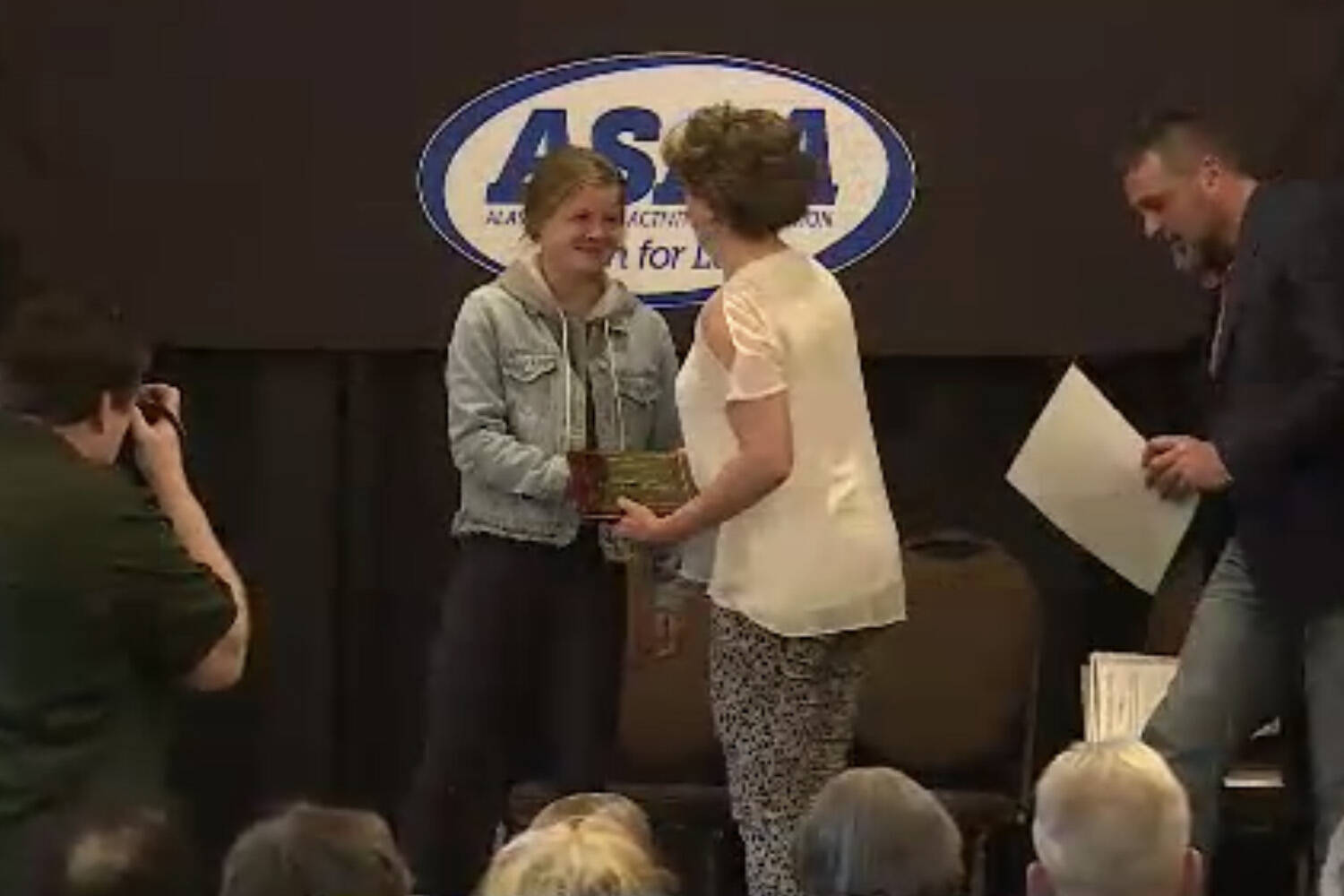Allie Ostrander, a 2015 graduate of Kenai Central, finished seventh in the 3,000-meter steeplechase Thursday at the U.S. Olympic Trials in Eugene, Oregon, to miss out on a berth to Paris this summer.
Ostrander, a pro runner based in Seattle, finished seventh to lower her personal best from 9 minutes, 24.70 seconds, to 9:21.82.
That effort was not enough in a sizzling race in which the top nine finishers not only hit personal bests, but dipped below the Olympic qualifying standard of 9:24.00.
The victory went to the only runner with Olympic experience in the race — Valerie Constien.
Constien set a new meet record at 9:03.22 despite an anterior cruciate ligament injury a year ago. She said after the race she didn’t start running until September and didn’t start workouts until December.
Courtney Wayment, who was fourth at the Olympic Trials in 2021, finished second in 9:06.50.
Marisa Howard finished third to nab the final berth at 9:07.14. Both Howard and Ostrander attended Boise State University, where Ostrander won three straight NCAA Division I 3,000 steeplechase crowns.
Ostrander said after the race on a video posted on YouTube by Letsrun.com that she never attended Boise State with Howard, but that Howard was there for Ostrander’s official visit and also was a volunteer assistant during Ostrander’s freshman season.
“I don’t know her super well, but I follow her,” Ostrander said. “I know she had an incredible race today.
“She’s been so consistently up in the top five at US championships. Just to see her persevere through everything — she’s had so many injuries, she’s had a kid, she’s a mom now — to see her make the Olympic team is just really inspirational, and makes me feel like it’s always possible if you just keep showing up.”
In videos on her YouTube channel, which has 66,000 followers, Ostrander continuously talked about her perfect buildup to the trials.
That ended two weeks ago, when Ostrander said in the Thursday Letsrun.com video that she tested positive for COVID. Alaska’s other Olympic hopeful in the steeplechase at the trials, Isaac Updike of Ketchikan, also had COVID before the trials and failed to make the team.
“I wasn’t even sure if I’d race here,” Ostrander said. “I didn’t know if I’d recover in time, but I’m so happy that I was able to do it, and it ended up not impacting me too much.
“I feel like it takes so much for the stars to be able to align to make the US Olympic team. It’s incredibly difficult to do, and it didn’t happen this year.”
Ostrander said she leaves the trials thinking she can make the Olympics one day.
“I do think I’m capable of it,” she said. “A lot of people are capable of it, is the thing. You never know who will have that perfect day.
“But I’m not done trying.”
This was the third trials for Ostrander. In 2016, she made the finals of the 5,000 meters and finished eighth. In 2021, she made the finals and finished eighth.
Ostrander started near the back of the pack in the 14-runner race and was never able to get up with the leaders.
She was in 11th after 1,000 meters, when the pack was still together. By 2,000 meters, Ostrander was in 10th but more than seven seconds in back of the leader of a pack of eight.
In the final 1,000 meters, she caught up to two runners who fell out of that lead pack.
“I wanted to be further towards the front, but I just found myself pushed towards the back right way,” Ostrander said. “So I made the most of it, but I didn’t run it tactically the way I wanted to.”
Ostrander said she is in good shape and wants to chase some other personal records.
“If there are any race directors out there that want me to race, my schedule’s open,” she said. “I only planned my life through today, so nothing is on the schedule.”
Ostrander’s first race in the 2021 trials was June 20. On June 11, she had announced she was seeking treatment for an eating disorder.
After those trials, she would not race another steeplechase until April 26, 2024.
Ostrander gave credit to parents Paul and Teri Ostrander, sister Taylor Deal, boyfriend Spencer Brown, coach David Roche and her friends for all their support.
“They have all been so supportive of me when I was racing well and when I wasn’t racing at all,” she said. “I think it helped me form an identity outside of just my athletic performance, and understand what I do on the track doesn’t matter.
“It only matters because it matters to me. So it’s not indicative of my work as a human or what I have to give to the world. It’s just something that I really want for my own personal fulfillment.”

